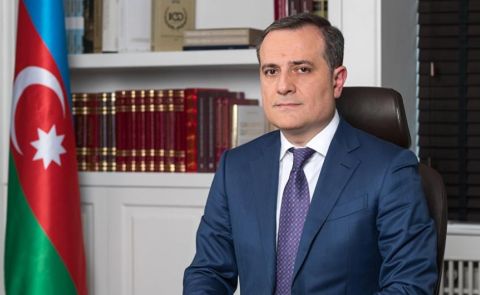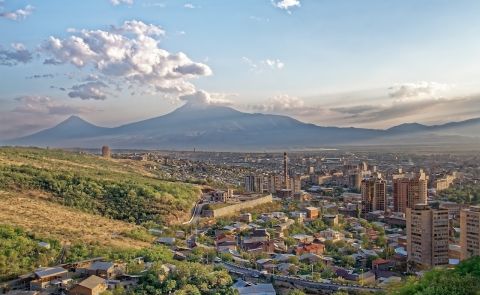
Azerbaijan Announces Large-Scale Gas and Renewable Energy Projects in Karabakh

On May 30, Sarkhan Babashov, First Deputy Head of the Gas Export Department at the State Oil Company of Azerbaijan (SOCAR), announced plans for the gradual reconstruction of main gas pipelines in Azerbaijan’s liberated territories during a meeting of the Working Group on Energy Supply Issues.
Babashov detailed that SOCAR had launched infrastructure projects in four primary directions, including the construction of the Horadiz-Lachin main gas pipeline and gas distribution stations (GDS) along its branches, with facilities planned in Jabrayil, Minchivan, Gubadli, and Lachin. He added that the Boyuk Bahmanli-Shusha main gas pipeline and its Gayali (Hadrut) branch would also be built, alongside relevant distribution stations. Further418 projects involve constructing the Azadgaragoyunlu-Aghdam main gas pipeline and the Aghdam GDS, as well as reconstructing a 79 km segment of the Yevlakh-Nakhchivan main pipeline. Additionally, SOCAR will lay the Aghdam-Kalbajar main pipeline and build the Kalbajar GDS. Babashov emphasized that these initiatives are crucial for restoring infrastructure and ensuring the gasification of settlements in the region.
At the same meeting, Vugar Aliyev, Advisor to the Chairman of AzerEnerji OJSC, outlined ongoing green energy projects in the liberated territories. He noted that a substation is under construction in Jabrayil to integrate a 240-megawatt solar power plant into the national grid and that Nobel Energy has commenced building a 100 MW solar plant. According to Aliyev, hydropower projects with a combined capacity of nearly 500 MW and solar initiatives ranging from 300 to 400 MW are planned across the Karabakh and Eastern Zangazur economic regions.
Aliyev stated that the region’s total green energy potential, including the Khudafarin and Giz Galasi Hydroelectric Power Plants (HPPs), exceeds 1,000 MW, which would allow the region’s energy demand to be fully met through renewable sources by 2040. He also confirmed the planned construction of six new HPPs, including a plant at the Sarsang reservoir, currently operating at 5–6 MW against a nominal 50 MW capacity, and additional stations on mountain rivers such as Mukhtarchay and Okhchuchay.
See Also


Nordic-Baltic Delegation Meets Armenian Leaders to Discuss Regional Cooperation and Peace

Azerbaijan Strengthens Energy Partnerships with Multiple Countries

BP Strengthens Presence in Azerbaijan’s Offshore Energy Sector

Netanyahu’s Letter to Aliyev: Mutual Trust, Solidarity Following Hamas Attacks, Facilitating Dialogue Between Israel and Türkiye

